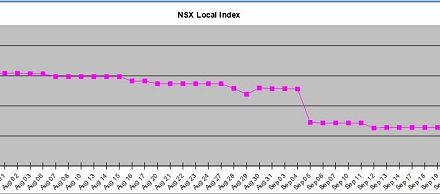
The whole country must be put up for sale
Well, what do you know? The second biggest tract of land in private ownership has just been listed as for sale. And while it is a registered private game reserve, it is still agricultural land, so I wonder what the Ministry of Lands and Resettlement must think of the fact that more than 70,000 hectares of good land may become the property of a Russian oil baron, or a Congolese diamond smuggler.
Some years ago, Capetonian property developer, Gert Joubert arranged a special press conference to tell all and sundry, the entire Namibia must be turned into a game reserve. He is the owner of Erindi Ranch, which is perhaps one of the best developed and invested private game reserves in the entire Africa and I do not say that flippantly.
In his opinion, tourism was the industry of the future, and once we have declared ourselves the National Park of Namibia, nobody would ever need to work again. The tourists would fly in by the millions while additional in-bound flights will have to be scheduled just to accommodate all the financiers flocking to corner local entrepreneurs with lucrative deals. This would be to provide all the financing we need to develop the massive infrastructure a country-wide national park requires. At that point, I still dreamed of my own floodlit waterhole, just across the street from my house, where I will sell over-priced drinks to dozens of visitors with thick wallets, all keen to see the elephants in my suburb.
Meanwhile the international financial crisis happened, and this year the drought happened. On top of that, the elephants in my neighbourhood turned out not to be pachyderms at all. And the lions were shot a long time ago when they started catching the neighbourhood dogs. So there went all my dreams of my own waterhole.
At that time of Joubert’s press conference, I wrote that the Erindi owner is nuts. He did not like this and about a year later he organised another press conference where he reiterated his national park agenda. He was very enthusiastic about this scatter-brained idea, telling us long stories of how he arrived as a platsak young entrepreneur in South West Africa, and what fantastic plans he had for Erindi, not mentioning that his true wealth only came from his property development in the Western Cape after he left Namibia.
But he stuck to his plan and aggressively started developing Erindi. His patriotism was there for all to witness as expressed by his unrelenting upgrading and extension of the accommodation facilities and the infrastructure in general. About a year ago, I estimated total investment to exceed N$100 million, and this was based only on what I could see. Imagine my delight when I was informed earlier this week Erindi is actually for sale, and the valuation indicates a tract of land carrying primary investments of some N$150 million. I did not count the fence, or the boreholes, or the land.
Last year, Erindi was booming, a fact which I brought to the attention of our readers, at that time comparing the obviously successful Erindi to other, more indigenous establishments that were suffering. But earlier this year when I visited Erindi again, I noticed it was in distress. This was not due to lack of business, but simply because of one pervasive aspect of Namibia that nobody must ever lose sight of. We live in an arid country, and dry spells and droughts are the norm. The out-of-kilter good rain years we had since 2000 are definitely not the expected pattern.
Even before the country-wide impact of the current drought became such a big burden, I saw that Erindi was over-grazed in many zones. At the main restcamp, it was also very obvious that it would take an enormous effort to see the hippo herd through a period where the main dam had scarcely enough water to cover these large animals. Only later was I informed that a second smaller herd in another dam is under more stress and that water had to be pumped continuously. All the hippos had to be fed and the fodder, according to my information, arrived by the truck load every week. So I was not that surprised to learn that some hippos were sold at the Erindi game auction some months ago, together with hundreds of other animals.
I stick to my observation that Erindi is one of the best assets we have in tourism. The investment is there for all to see, and I suppose it will survive the drought. I still find the presence of hippos in a semi-desert area a rather obvious anomaly, but the tourists do not care. Neither are they concerned about the fact that the elephants and the lions are relocated to add to spectator value. It is just that I feel betrayed when the heavy-weight tourism proponent, suddenly grows feet of clay.











































